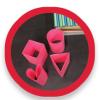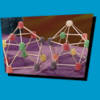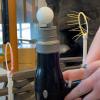Search Results
Showing results 1 to 13 of 13

Moon Watch Flip Book!
Source Institutions
In this activity, learners observe the moon each night for a month and draw their observations in a Moon Watch Log.

Air Lift
Source Institutions
In this physics activity, challenge learners to lift a book with just air using a plastic bag and a straw. This activity demonstrates compressed air and forces.

How to Test The Strength of Shapes
Source Institutions
In this activity, learners explore the strength of different shapes. Fold paper into triangles, squares, and other shapes, then experiment with how much weight they can hold.

Habitat Observations
Source Institutions
In this outdoor activity, learners discover the wonders of the habitat surrounding them.

Jump to It!
Source Institutions
This is a quick and simple demonstration about reflexes (second activity on the page).

Newspaper Bridges
Source Institutions
In this activity, learners build bridges out of newspaper and tape to explore how structures are designed to bear loads.

Gumdrop Dome
Source Institutions
In this engineering activity, learners construct sturdy geodesic structures out of gumdrops and toothpicks. Use this activity to explore engineering principles as well as sturdy shapes and triangles.

Bernoulli Obstacle Course
Source Institutions
In this activity, learners create their own obstacle course based on Bernoulli's Principle and try to get a floating ball from the start of their course to the finish line.
Math and Creativity Posters
Source Institutions
These math posters have questions written on them, such as: How many colors can you name in a minute? or How many seconds can you balance on one foot?
Animal Math Posters
Source Institutions
These math posters have questions written on them, such as: How fast can a cheetah run? or How long can a giant tortoise live? Post these around the room or leave them out for children to explore.

Building Tall
Source Institutions
In this engineering activity (page 2 of PDF), young learners investigate how a wide base can make a building more stable. Learners use blocks or boxes of different sizes to construct stable towers.

From the Internet to Outer Space
Source Institutions
In this activity, learners will use Google Sky to observe features of the night sky and share their observations.

As Straight as a Pole
Source Institutions
In this engineering activity (page 3 of PDF), young learners investigate how a pole can be made stable by “planting” its base in the ground or adding supports to the base.
